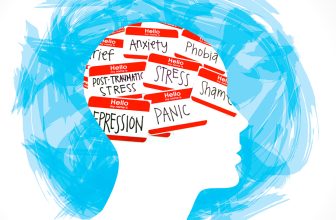Health education specialists create, develop, and evaluate programs to keep people healthy in their everyday lives, using information from the biological, environmental, psychological, and medical disciplines.
What is health education?
Individuals and communities are taught how to live better lives via health, which professionals provide.
Also, educators are educated to assess needs and create, administer, and evaluate programs and communication tactics in various settings.
The Purposes of Health Education:
Some of the key goals of health education are as follows:
- To disseminate knowledge about health education and its importance as a community asset – Health education strives to familiarise etchers with hygiene regulations. Workings of Precautionary Measures to Prevent Diseases and Provide Disease-Free Working Conditions.
- To maintain good health standards: The authorities shall offer a sanitary environment in the form of enough ventilation, suitable temperature, decent sanitation, and general cleanliness. It aids the government in maintaining specific health standards.
- Take preventative measures against contagious illnesses. Its goal is to take all necessary steps to prevent illness contamination and dissemination. As a result, proper hygienic measures are established. Efforts should be taken to avoid infection. If effectively implemented, they may aid in improving society’s health standards.
- To help school-aged children comprehend the nature and purpose of health education services and facilities, it seeks to detect physical deformities and other anomalies in children and promote their reduction if they are treatable.
- To build and promote mental and emotional health – Mental and emotional health is also equally vital along with physical health. Also, while physical health allows a student to be physically active, mental and emotional health will retain a calm demeanor and a positive attitude.
- To instill a feeling of civic duty in students. A school is a mini-society. Also, the responsibility for skill health does not fall on the shoulders of anybody. For instance, even some causes of skill health have roots in societal issues that need community-wide effort to remove. Also, its goal is to inspire individuals to join forces and strive for community health.
The following are the goals of health:
The following is a thorough list of health education functional goals in schools.
1. To allow students to build a scientific perspective on health based on traditional and current health concepts.
2. For instance, to teach students how to recognize health education issues and their part in dealing with them and the function of medical agencies in dealing with them.
3. To allow the learner to take an interest in current events relating to health.
4. To allow students to reach appropriate conclusions based on scientific knowledge and take action as a family and community member to preserve, maintain, and promote individual and community health.
5. To enable students to set a positive example of health education behavior.
6. To allow students to comprehend the causes of pollution of air, water, soil, food, and preventative methods.
7. For instance, to provide pupils with appropriate first-aid knowledge.
8. For instance, to offer students helpful information on marriage, sex, and family planning.
9. Also assist students in comprehending the significance of physical training sports, games, yogic activities, and their connection to a health education curriculum.







